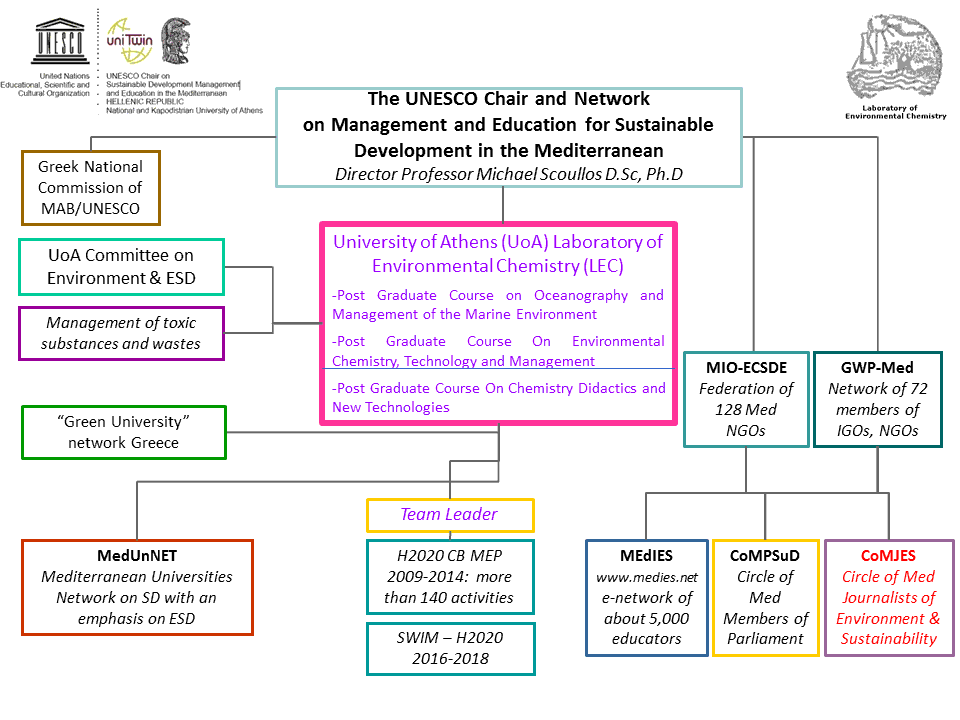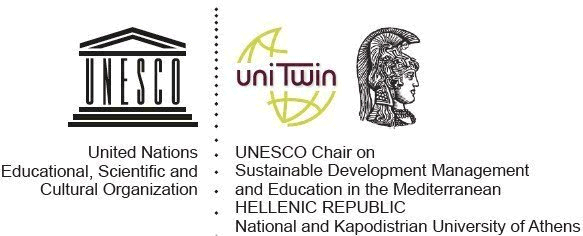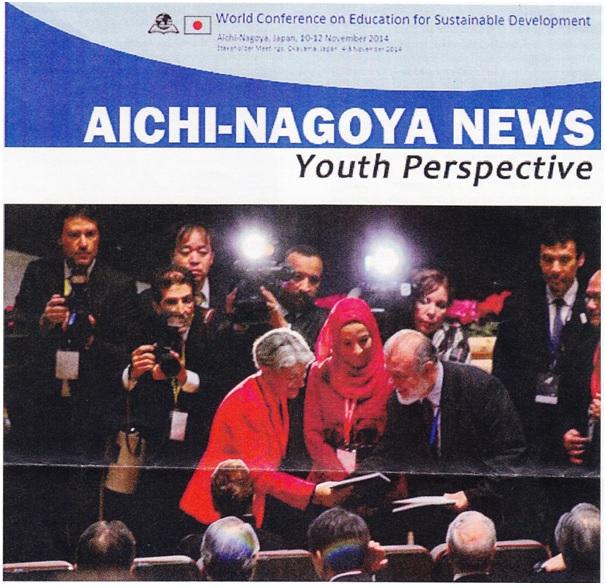


The UNESCO
Chair and Network at the UoA was formally established in December 2012 with the
objectives:
Major
achievements of the Chair (till the end of 2015) include:
These
initiatives are presented below following:
CHARTER of
Greek Universities for Sustainable Development
The charter has been signed in 2012.
Download the charter in English language here and in Greek language here.
 |
|
National Institutes Most of the Greek Universities Hellenic Centre for Marine Research (H.C.M.R.) General State Chemical Laboratory “Democritus” Research Centre National Agricultural Research Foundation (N.AG.RE.F.) UNEP/ MAP and its RACs |
International Institutes Ruder Boskovic Institute of Zagreb European Environment Agency (EEA) Univ. of Dresden Univ. of Liverpool Agricultural University of Carthagena, Marine Environmental Laboratory of Monaco (IAEA) UNESCO/IHE Bulgarian Academy of Science, Institute of Inorganic Chemistry |
|
International Organizations IUPAC GWP-MED Bulgarian Academy of Science, Institute of Inorganic Chemistry MIO-ECSDE GUPES/UNEP UNESCO /GAP |
|
Courses offered: |
General Chemical Oceanography Marine Chemical Pollution Analytical Chemical Oceanography Special Chapters of Chemical Oceanography Ecotoxicology Management of the Marine Environment Marine Resources and Marine Chemical Technology Methodology, Elaboration and Results of Research Programs of Chemical Oceanography |
|
Courses offered: |
Chemistry - Pollution of Aquatic Systems Atmospheric Chemistry - Pollution Technology of Protection and Environmental Management Environmental Management and Sustainable Development Analytical Chemistry – Environmental Applications Chemical Oceanography Renewable Energy Sources Environmental Archaiometry Ecotoxicology Consultation methods of environmental matters |
|
Courses offered: |
Education for Environment and Sustainable Development I Education for Environment and Sustainable Development II Non Formal and Informal Education for Sustainable Development Environmental Management |